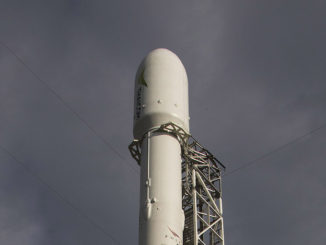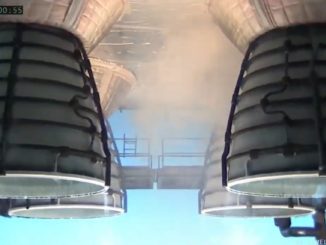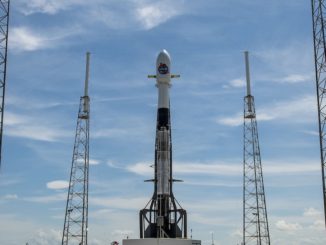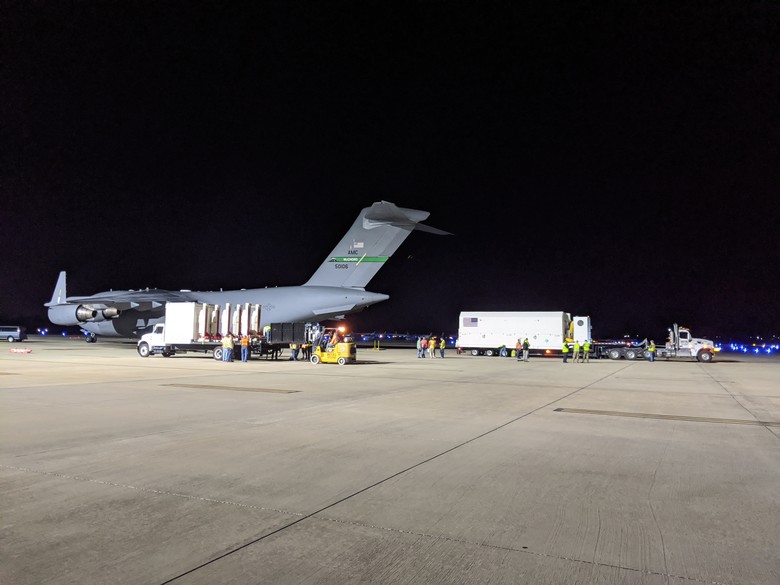
The U.S. Space Force’s third new-generation GPS 3-series navigation satellite has arrived in Florida for final processing and fueling ahead of a launch currently targeted for April 29 aboard a SpaceX Falcon 9 rocket.
The GPS 3 SV03 spacecraft landed Feb. 5 at Space Coast Regional Airport in Titusville, Florida, after a ride aboard a U.S. Air Force C-17 cargo plane from Buckley Air Force Base, Colorado, near the satellite’s Denver-area Lockheed Martin factory.
The navigation satellite was trucked to the nearby Astrotech payload processing facility, where Lockheed Martin teams will configure the craft for launch, fill it with maneuvering propellant, and encapsulate the satellite inside a SpaceX payload fairing before moving to a nearby SpaceX launch facility.
Teams there will mount the payload horizontally to a Falcon 9 rocket before rollout and launch.
Liftoff of the GPS SV03 spacecraft is currently scheduled for April 29 some time during a four-hour launch period opening at 7 a.m. EDT (1100 GMT). An exact launch time will be announced later.
The GPS SV03 satellite is the third in the newest series of GPS navigation spacecraft, following the launch of the GPS 3 SV01 satellite in December 2018 aboard a Falcon 9 rocket, and the deployment of the SV02 platform in August 2019 by a United Launch Alliance Delta 4 rocket.
Both missions were successful, and the satellites are operating normally in orbit roughly 12,550 miles (20,200 kilometers) above Earth.
The GPS SV03 satellite is named “Columbus” after Christopher Columbus, the Italian explorer who visited the Americas on four expeditions beginning in 1492. The SV01 and SV02 spacecraft were named Vespucci and Magellan.
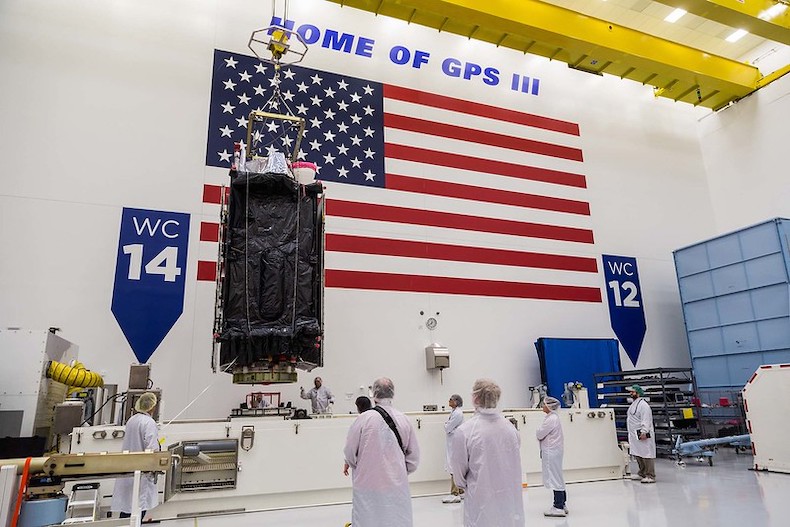
“The arrival of the third GPS 3 satellite is another landmark for the program and is a testament to the professionalism, hard work and dedication of GPS team members from all parts of the country,” said Col. Edward Byrne, chief of Production Corps’ Medium Earth Orbit Space Systems Division at the Space Force’s Space and Missile Systems Center. “The delivery of SV03 marks the start of our second GPS 3 launch campaign on a SpaceX Falcon 9 rocket and brings us another step closer in advancing the GPS constellation with more capable satellites.”
The GPS network provides positioning and timing services worldwide for military and civilian users, beaming signals relied upon by airliners, ATMs, drivers and smart bombs, among numerous other users.
The Space Force says GPS SV03 will join 31 operational satellites in the GPS fleet providing non-stop positioning, navigation and timing services.
The GPS 3 satellites offer more accurate navigation signals and boast longer design lifetimes. The new GPS 3 satellites provide a new L1C civilian signal that is compatible with Europe’s Galileo navigation network.
Like the previous line of Boeing-built GPS 2F satellites, all GPS 3-series spacecraft broadcast a dedicated L5 signal geared to support air navigation. The GPS 3 satellites also continue beaming an encrypted military-grade navigation signal known as M-code.
Lockheed Martin is on contract with the Air Force to build up to 32 satellites, including 10 GPS 3 spacecraft and 22 upgraded GPS 3F satellites.
Email the author.
Follow Stephen Clark on Twitter: @StephenClark1.

